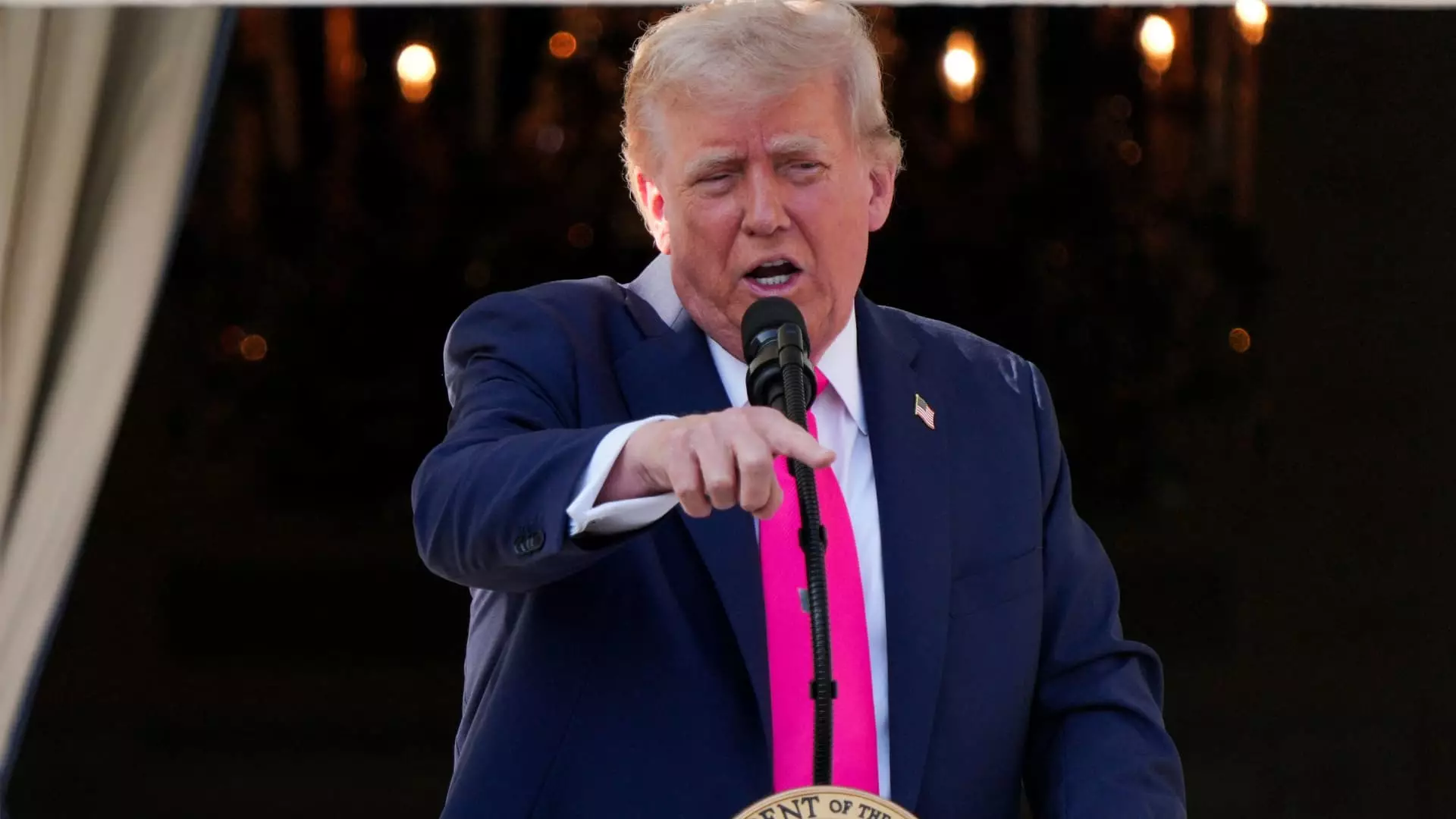The recent announcement by President Donald Trump about his intent to escalate tariffs on multiple international partners reveals a troubling trend: a dangerous overconfidence masked as strategic assertiveness. Sending “take it or leave it” offers to nations under the guise of protecting American economic interests not only exposes a lack of genuine diplomacy but also underscores a shortsighted desire for dominance. This hawkish approach ignores the intricate webs of global trade, revealing a naive view that tariffs are a tool of leverage rather than a weapon of inevitable retaliation. Such an attitude dismisses the complexities inherent in international relationships, sometimes risking an all-out trade war that could undo the benefits of decades of globalization.
Negotiation or Confrontation? The False Choice in Modern Trade Policy
What’s most alarming about the Trump administration’s approach is its apparent view that tariffs are a one-size-fits-all solution to economic friction. Instead of engaging in meaningful dialogue, the White House appears poised to deliver unilateral tariffs with minimal room for negotiation, risking a breakdown in diplomacy. This combative stance suggests an oversimplified understanding that economic power can be imposed through brute force, much like a bully on the playground. It disregards the fact that genuine trade agreements require patience, mutual trust, and the willingness to compromise — qualities that seem increasingly absent from this administration’s playbook.
Short-Term Wins, Long-Term Dangers
By threatening tariffs as high as 70%, the Trump administration seems fixated on delivering a swift message of dominance. However, this approach is fundamentally flawed. It sacrifices the stability of the global economy for some brittle headlines. The risk is not just retaliation, but the erosion of the very foundations of international trade. Industries that depend on global supply chains will bear the brunt of these punitive tariffs, which will ripple through to American consumers through higher prices and fewer choices. The confrontational posture ignores the potential for mutual gain in trade relations and underlines a shortsighted belief that economic strength can be bolstered by intimidation rather than diplomacy.
Trade Wars Today, Economic Sovereignty in Jeopardy Tomorrow
While critics decry these tariffs as reckless, supporters might argue they are necessary to correct perceived imbalances. Yet, the broader picture reveals a deeper issue: reducing complex economic issues to a game of tariffs and threats risks undermining America’s geopolitical standing. The recent failed negotiations with India and the EU exemplify how aggressive tactics miss the mark, alienating allies and amplifying global instability. The premise that tariffs serve as a lever to rewrite trade rules underestimates the importance of cooperative frameworks for long-term prosperity.
The Need for a Center-Left Perspective: Advocating for Fairness and Diplomacy
In this chaos, a center-wing liberal outlook advocates for a nuanced, balanced approach. Diplomacy should be at the heart of trade policy, emphasizing multilateralism and fair practices. Tariffs might seem like quick fixes, but they undermine trust and collaboration — essential ingredients for sustainable economic growth. Instead of cultivating an adversarial approach, policymakers should focus on creating equitable trade agreements that protect workers and consumers while encouraging innovation and cooperation. The short-term bravado should not eclipse the long-term goal of maintaining worldwide economic stability through dialogue and mutual respect.
A Future Defined by Strategic Collaboration, Not Reckless Confrontation
The reckless escalation of tariffs reflects a broader failure to recognize the importance of constructive international relationships. The trade policies under Trump reveal a preference for confrontational tactics that threaten to isolate the United States on the global stage, while minimizing the potential benefits of cooperative economic strategies. For a resilient and inclusive economy, America must abandon the illusion of dominance and embrace a path rooted in diplomacy, fairness, and strategic collaboration. Only then can the nation secure sustainable growth and forge lasting alliances in an interconnected world.

Leave a Reply